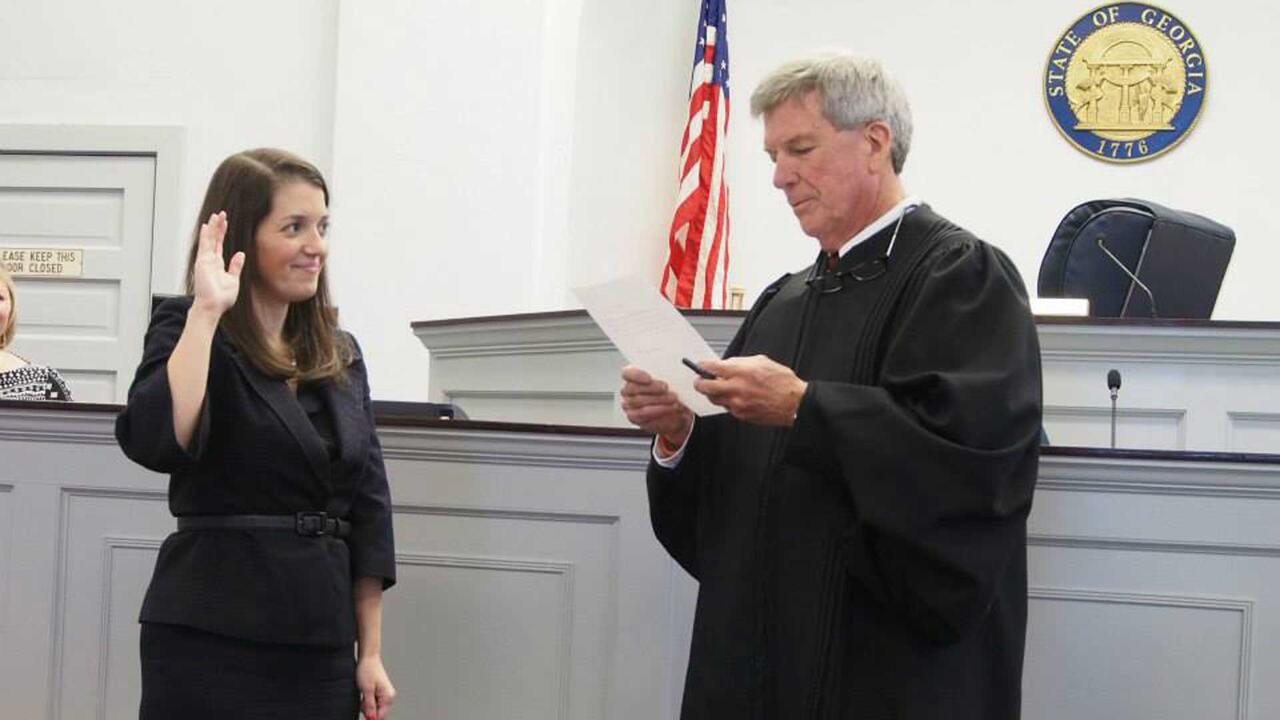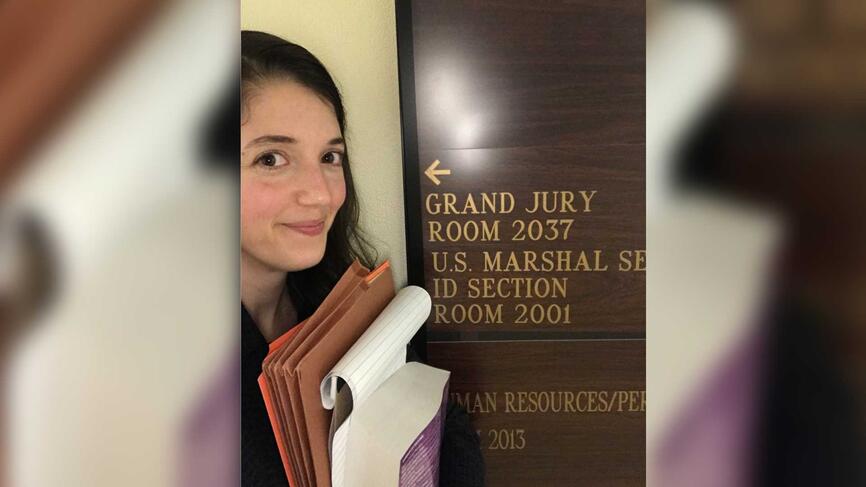
Why Vote? Ask Alex Joseph ’10
“Riot. But still vote.” That’s the advice Alex Joseph ’10 has for anyone disenchanted with the November ballot options, but particularly young people who don’t see enough difference between the candidates running on each major party’s platform. “I definitely think it is worthwhile to vote, even as you march, even as you protest,” she said.
Joseph is co-founder of Informed Georgians for Justice (IGJ), a nonpartisan volunteer project that educates Georgians about criminal justice issues by focusing on candidates running for sheriff, district attorney, and solicitor.
Joseph worked as a prosecutor in Georgia for five years, first at the state level and then at the federal level. “The criminal justice system is the bleakest system in the United States,” Joseph said. “And it’s huge. One out of 13 adults in Georgia is under some sort of arm of the criminal justice system.”
As a prosecutor, she served in a rural area and was alarmed by situations she witnessed. “During the plea deals, I was seeing people as young as 20 getting 20-year sentences. They were going to spend equal to their life incarcerated,” she said. “I felt the weight of every plea that I handled. And honestly, my coworkers did, too. I mean, the people that are prosecutors, they’re public servants. They take what they do really, really seriously.” She said she was shocked that more members of the public weren’t talking about the legal situations she was seeing on a daily basis: economically disadvantaged people, young people, and undocumented immigrants who didn’t speak English well agreeing to terms and pleas they may not have fully understood.

Joseph worked hard to become a prosecutor, but under the current presidential administration her job involved handling a number of immigration cases and deporting people who had no criminal histories, which didn’t align with her personal beliefs. “I did not enjoy working for the administration, but I was also very, very burned out from being a prosecutor, like my politics had shifted,” she said. “I’m happy I had the opportunity to be a federal prosecutor. And I’m happy I’m no longer a prosecutor.”
She believes the criminal justice system flourishes by being invisible and because of the shame people feel when they are caught up in it. “So many people are churning through the system. And this system really, actively operates in secrecy,” she said. “Part of my mission, once I left the U.S. Attorney’s Office, was to shed some light on the secrecy inherent in the criminal justice system.”
IGJ started simply. Joseph and her co-founder, Robin Shahar, wanted to collect contact information for candidates for sheriff, district attorney, and solicitor in the state because there was so little information available about these races. She wanted voters to know how to contact these candidates. Once they had the information, they had to decide what to do with it. They partnered with the Georgia NAACP, and now the organization sends surveys to candidates asking where they stand on issues such as law enforcement accountability and serving immigrant communities. They make responses available to state residents via IGJ’s website.
Joseph said she has always wanted to work within the system in order to change it. She encourages people to vote, even if it means participating in a system they want to dismantle. “I am asking citizens in Georgia to vote in sheriff elections and district attorney elections. Those are the foundation of a system that creates huge inequalities in our society,” she said. “I’m saying it’s still worth voting for people that are the gatekeepers to the system that we, in fact, want to bring crashing to the ground.” She also believes there are candidates worth supporting. “Georgia has the most progressive district attorney candidate in our entire history, a woman in Athens, Georgia. I don’t get to vote for her, but someone does, and that’s exciting,” she said.
“What does it mean to be a force for good within a corrupt system?” she asks. “I’m happy Wellesley students are grappling with these issues, but I think it’s worth grappling with and then voting.”



